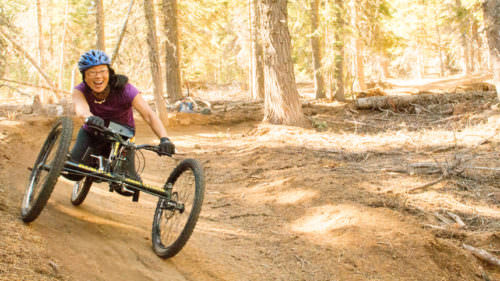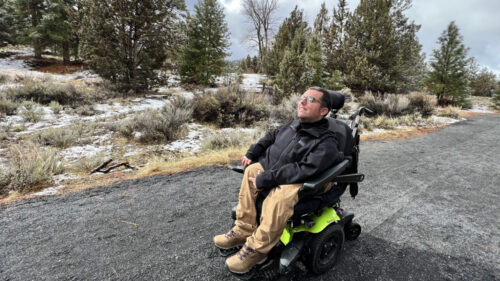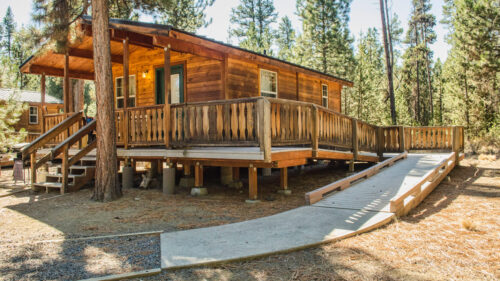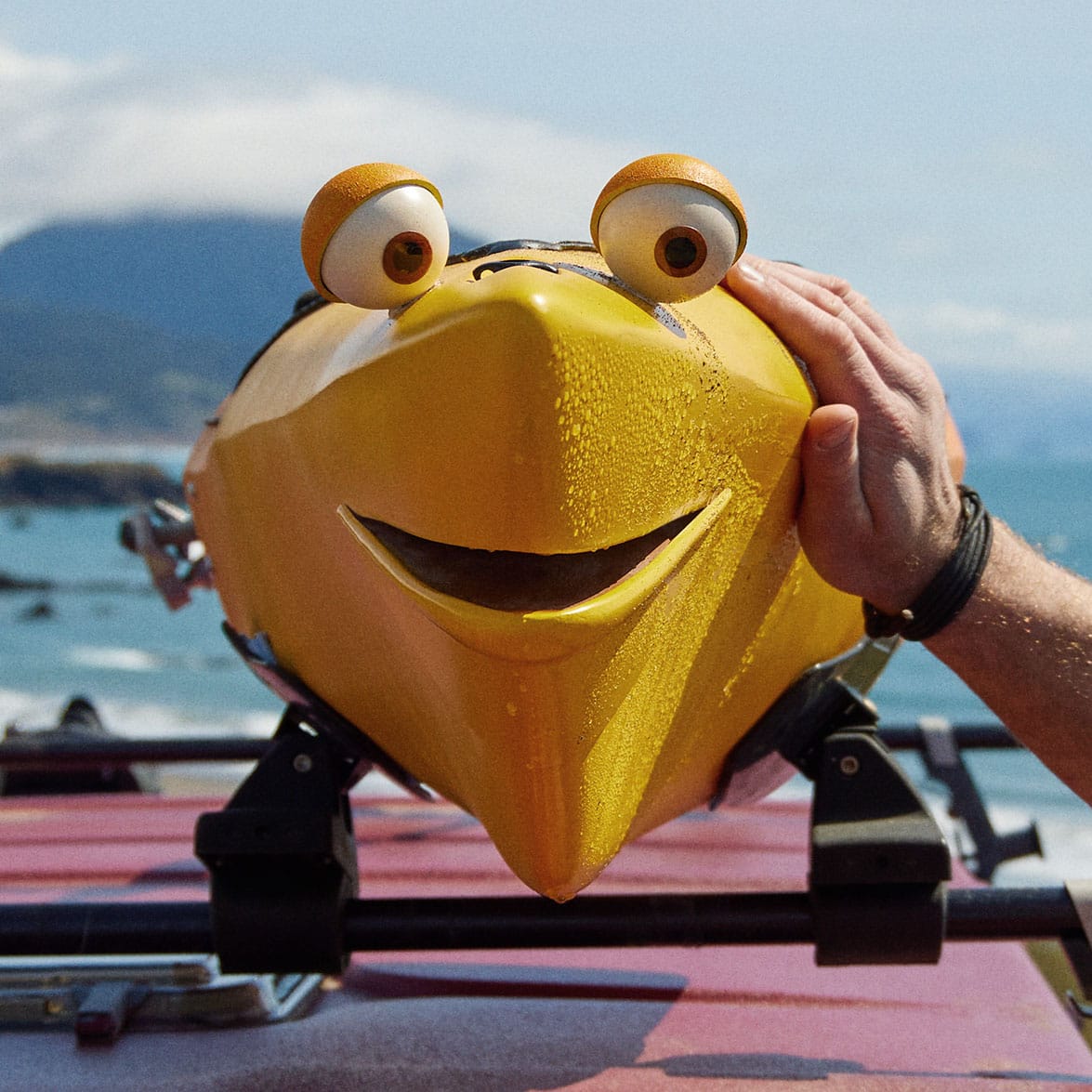In September 2023, Sylvia Longmire traveled to the Oregon Coast for the first time. A travel writer, filmmaker, voice actor and mother from Florida, she took in ocean breezes from the soft sand at the water’s edge in Newport and Pacific City.
While that may sound like a classic Oregon Coast outing, there was something about Longmire’s visit that stood out: She was able to traverse the beaches from a special all-terrain track chair that uses tank-like treads to traverse rocky trails, sandy beaches and just about any other kind of ground.
“It was phenomenal,” says Longmire, a U.S. Air Force veteran who has been using a wheelchair full-time for the past eight years due to multiple sclerosis. “With other beach wheelchairs, you can’t really get too close to the water. With the track chair, you could actually go all the way down to the water’s edge and even get your feet a little wet.”
Longmire was able to get close to the ocean thanks to an Oregon nonprofit called David’s Chair. Founded in 2017, it offers the free use of track chairs on the Oregon Coast and in other locations to help people with mobility issues experience some of Oregon’s true outdoor beauty.
“Our goal is to provide access to the outdoors to people with limited mobility,” says Steve Furst, CEO of David’s Chair. “If we can provide this service for free, it really makes a difference.”

“With other chairs, someone has to push you. I love that this is independent, that I can go where I want, when I want.”
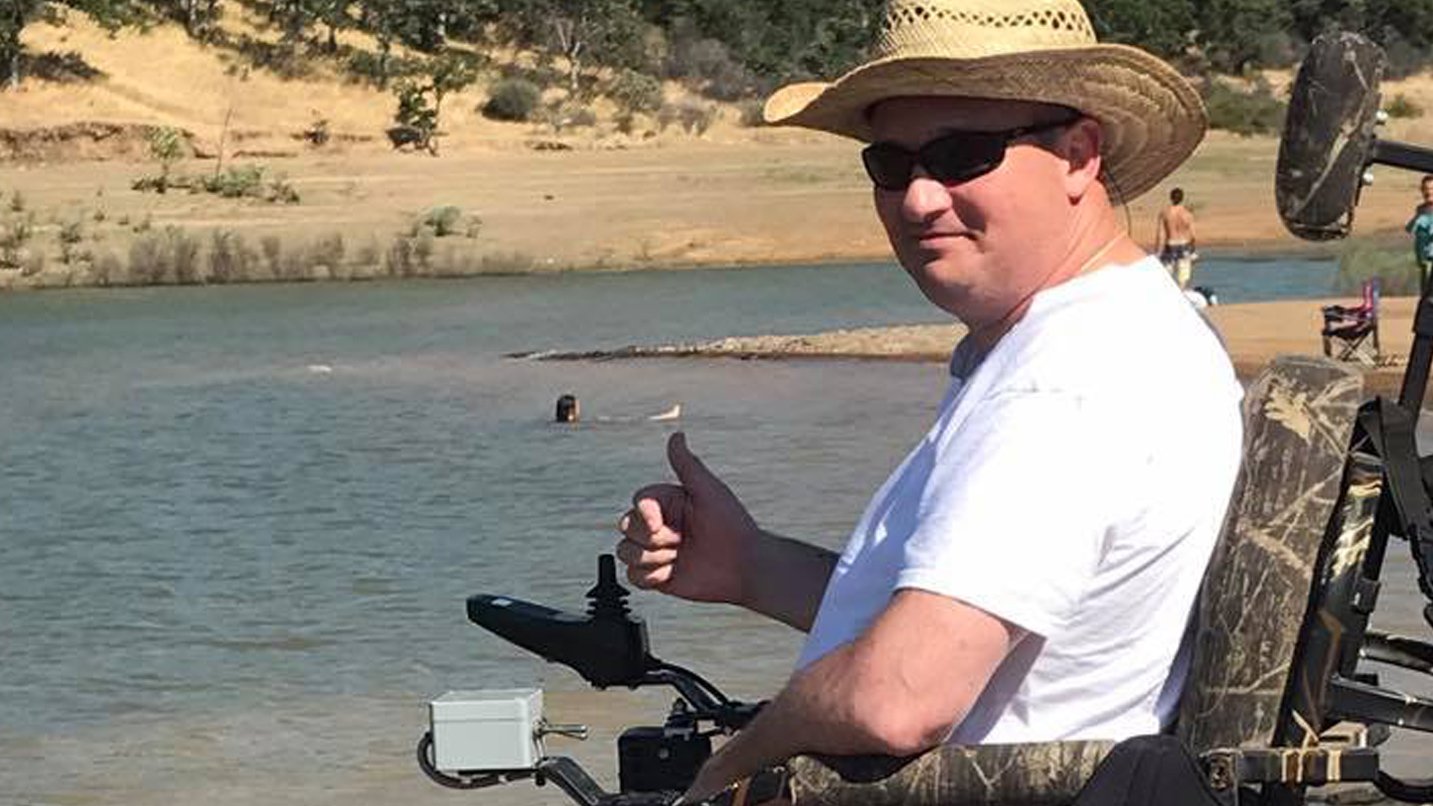
A Determined Outdoorsman Gives Birth to an Idea
David’s Chair takes its name from David Hatrick, an ardent hunter, fisherman and hiker who was happiest roaming about outside, especially on the Oregon Coast. One of his favorite places was Harris Beach State Park near Brookings, with its miles of sandy beaches, majestic sea stacks and tide pools teeming with marine life.
In the years leading up to 2017, Hatrick began to lose his mobility, making it harder for him to get out into the Oregon he loved. Then, in 2017, he was diagnosed with amyotrophic lateral sclerosis — more commonly known as ALS or Lou Gehrig’s Disease — a progressive neurodegenerative disease that robs people of muscle movement and shortens life expectancy.
Hatrick was determined to live out the time he had left with gusto. With the help of longtime friend Furst and members of his community, they were able to fundraise the $20,000 for a track chair, which became the inaugural David’s Chair. He was only able to use the chair for a short time before he passed away in January 2018, but it gave Hatrick access to places that he would not have had otherwise.
Knowing how beneficial that access was also gave Hatrick an idea: He wanted other people to be able to use his chair, to see Harris Beach and other gorgeous places on the Oregon Coast, long after he was gone. With the support of his community, volunteers, grants, donations and enthusiasm to help people experience some of Oregon’s great outdoors, David’s Chair has been doing that ever since.
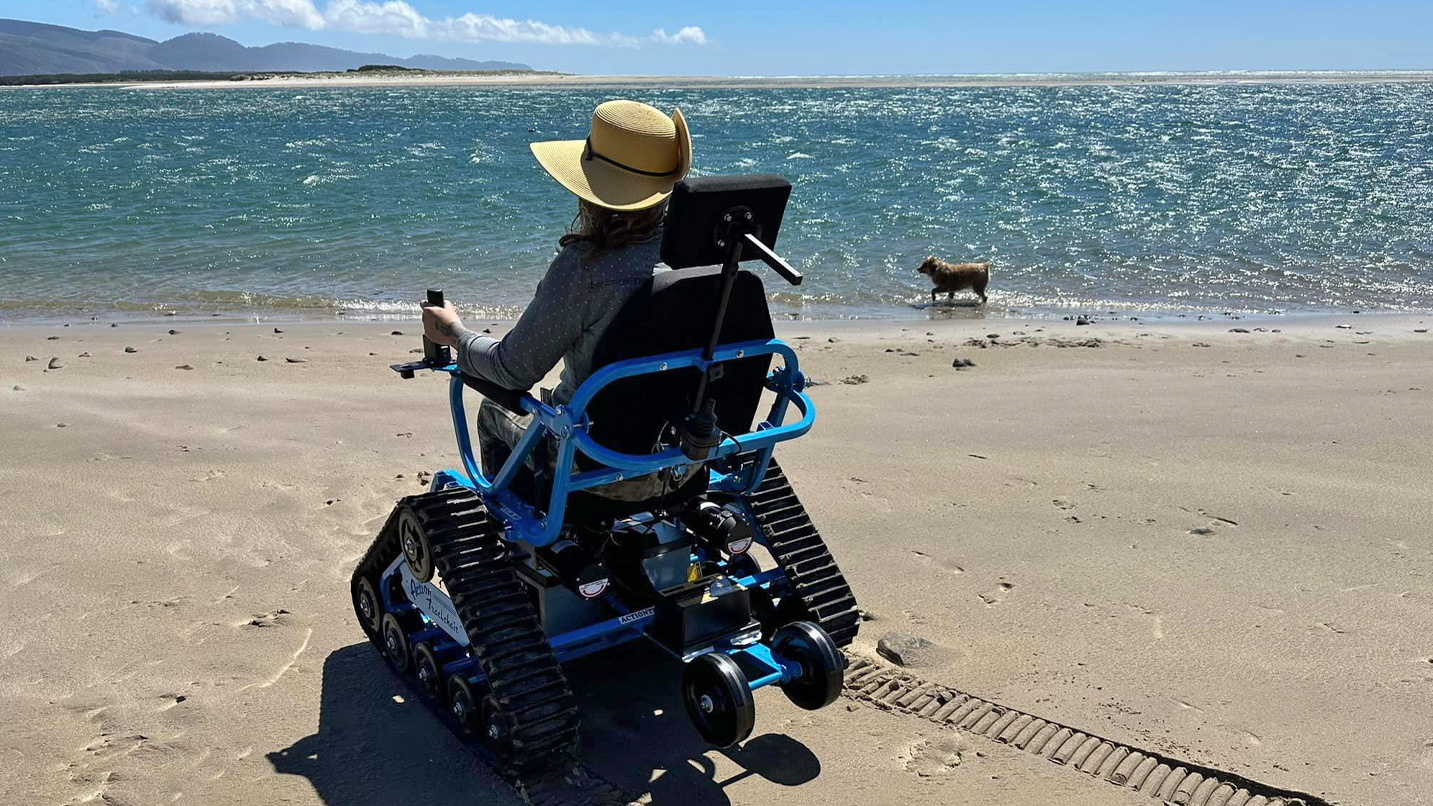
Bringing Track Chairs to the Coast and Beyond
In the six years since its founding, David’s Chair has already made a big impact. The nonprofit has grown to an organization with five employees, a network of more than 50 volunteers and multiple options to use free track chairs along the Oregon Coast and at other locations in Oregon.
On the Coast, David’s Chair rents track chairs year-round at fixed sites in Manzanita, Seaside, Netarts, Pacific City, Newport, Florence and Gold Beach. Anyone looking to use one of the chairs can reserve online. The chairs are stored at locations in these cities and tended to by local volunteers in a variety of host organizations, and they also help with paperwork and transport questions. The chairs are free to check out in two-hour intervals, usually Thursdays through Sundays, though some locations may have more days based on availability of volunteers. “We try to take care of as many of the logistics as possible to make it easy for people,” Furst says.
Also unique to the chairs in Oregon is the fact that one model has a tilt function, which allows the user to essentially stand upright while moving about. Longmire notes that the chairs cut through the Oregon sand “like butter,” and better still, she didn’t need anyone’s help to operate it. “With other chairs, someone has to push you,” she says. “I love that this is independent, that I can go where I want, when I want.”
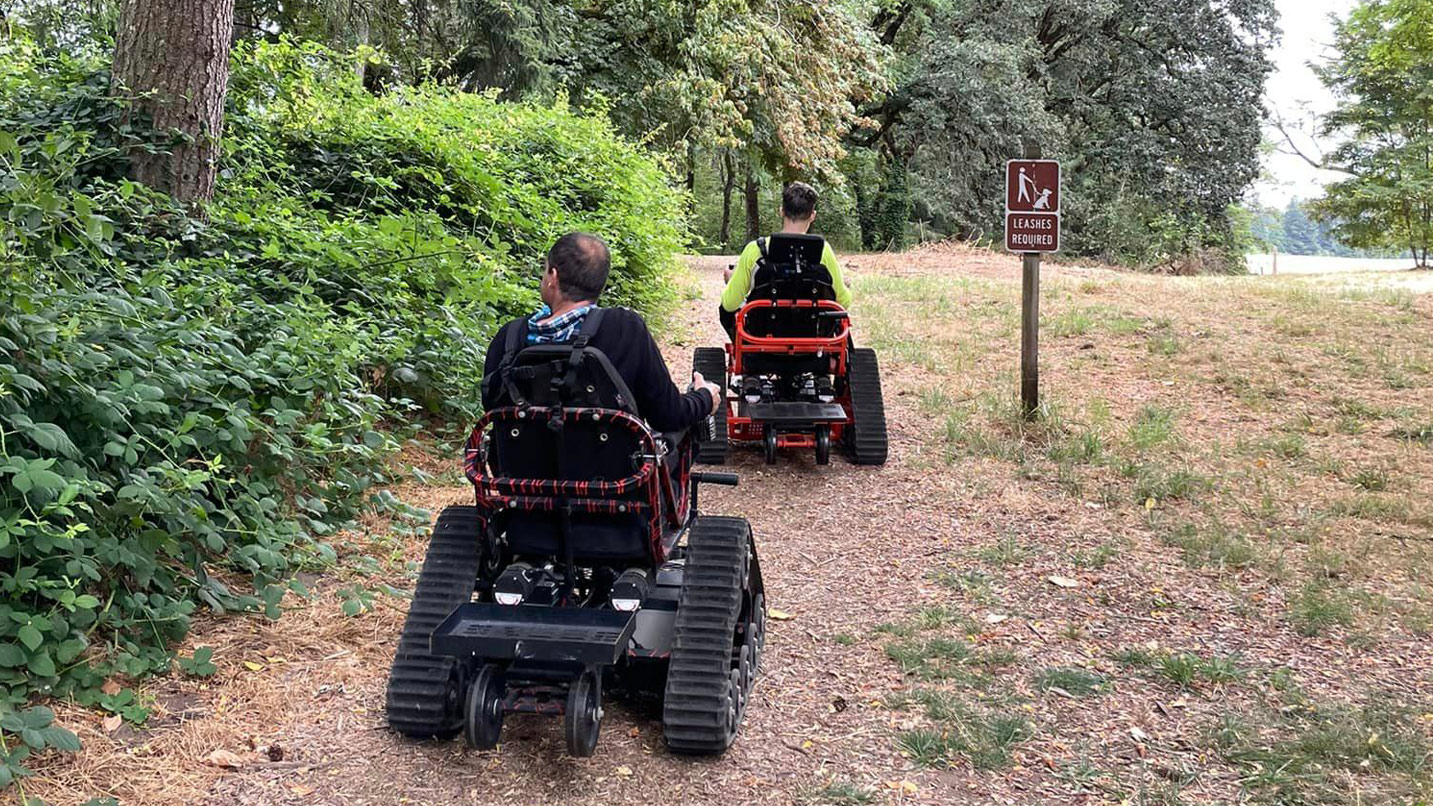
Recent grants and a partnership with Oregon Parks Forever have helped David’s Chair expand its footprint. In addition to the fixed sites, David’s Chair also offers chairs at two locations through its Tow ’N Go program: one in White City (north of Medford), which has three chairs and trailers available, and one in Tigard, which has one chair and a trailer. As with the Coast chairs, people can reserve a chair for free and tow them to their outdoor destination.
Furst can’t believe how far David’s Chair has come already in helping people with disabilities get outside to enjoy Oregon’s beautiful outdoors. He attributes that in part to hiring the right people, a generous group of supporters and a real need for what David’s Chair can offer.
“Before David died, we talked a lot about his vision and his legacy,” he says. “I remember on that first trip to the Coast with the chair, I looked at my buddy and thought, I’ve got to figure this out. And he looked at me and said, ‘I know you are going to make this happen.’”
